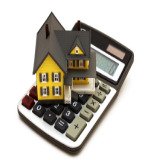Assessed Value Vs Market Value: What Is The Difference And Which Do Lenders Use When Evaluating A Loan?
What is the difference between the assessed value vs market value of your home? Which of these values affects your property taxes? Your house
market value will differ from your property tax value in most cases. Want to find out why? Keep reading and I'll explain everything.
The assessed value is what the property taxes on your home will be calculated on, even if the market value is much higher. Understanding the
difference between these types of value is important, especially if you will be buying or building a home and need a lender for a mortgage. It is
also important to note that often the market value of a home does not conform to the assessed value of the same home.
Huh????
I know........that makes absolutely no sense, but I promise you it will!
When you are looking at the assessed value vs market value, there may be a big difference between these two numbers. Why is that you ask?
Does the house market value reflect more factors than the property tax value (assessed value)?
House Market Value: What This Is and How It Can Fluctuate
Market Value Definition:
Market value is the most probable price as of a specific date (the date of sale) that a property with all its rights should sell after reasonable
exposure to buyers in a competitive market with the sellers under no undue duress (meaning the sellers aren't forced to sell).
At its most basic form, house market value is usually the highest price that the home would bring on the real estate market if a reasonable
length of time is allowed for the home to sell. In this scenario the buyer will have complete knowledge of the legal uses and purposes of the
home.
Assessed Value: How the Assessed Value Differs
Assessed Value Definition:
Assessed value is the value of a property as of a certain date (usually January 1st) according to the tax rolls of your local government
jurisdiction (county or city). This value can be higher or lower than market value based on the assessment ratio, which is a percentage of
market value.
What is an Assessment ratio? The assessment ratio is the percentage that each state uses to determine the property taxes. A state will also
determine whether you will be assessed per hundred or per thousand dollars. What does this mean?
Example - Your property's market value is $100,000 as of January 1st according to your county. Your neighborhood market activity is
normally monitored by a county tax assessor over the course of one year. The assessment ratio in your state is 60%. You take $100,000 x 60% =
$60,000. Now that $60,000 is your assessed value.
If you want to figure out the actual dollar amount in taxes you will pay, you take that $60,000 and divide it by 100 or 1,000 depending on
your state (you can call your local jurisdiction and ask if your taxes are calculated per $100 or per $1,000). In this example your state
assesses per 100. Take $60,000 / 100 = $600 x (your county tax rate) = the total amount in property taxes you pay per year!
Your county tax rate is usually set by your local elected officials. So, for example let us do a final calculation of the taxes of the above
property with a tax rate of $1.23.
$100,000 (market value) x 60% (assessment ratio) = $60,000 (assessed value) / 100 (state mill rate) = $600 x $1.23 (local county tax rate) = $738 in taxes you would pay your county for one year.
As you can see in this example, the county tax rate increased your taxes by 23% (23 cents over one dollar). You can also see how the county
tax rate has nothing to do with the assessed value of your home. It was added after your assessed value was set. It's a way for government
leaders to get more money to pay for county services and programs.
The property tax value (assessed value) of your home may not change unless certain circumstances occur, depending on the state and city where
you live. Many states do not allow the assessment value to be increased unless the home is sold (California among others) or there are
improvements done to the house.
When you're looking at the assessed value vs market value of homes, in many cases you may notice that the house market value rises and falls,
but the property tax value of the home usually stays stable and only changes if certain conditions occur.
Loan Applications and a Lenders View of Assessed Value vs Market Value
Loan applications are part of the mortgage process, and the lender will compare the assessed value vs market value of the home. For the
lender, the market value of the home is the most important of these two amounts, because this is the amount that the lender will use to value
the home.
House market value can change frequently, and is dependent on the housing supply and demand as well as other factors, including the economy.
The property tax value (assessed value) of a home can vary greatly given the factors above. Market value is the most accurate and stable as far
as lenders are concerned.
This value is preferred by lenders because it's based on facts and certain factors that reflect the true value of the home. This is the
amount that is usually used for mortgage applications and home equity loans.
Property tax value (assessed value) is used more as a guide for lenders, but they know that value is set as of January 1st. So, if you're
buying or building a home and it's July, that property tax value (assessed value) is seven months old. A bank will not lend money solely on a
seven month old appraisal by your county.
It's important to understand that there are some differences in the assessed value vs market value, and to know what these differences are.
You Might Also Like:
Home Design Floor PlansHome Design Floor Plans |
Green Home DesignsGreen Home Design |
Boat Home PlansBoat Houses |
Return from Assessed Value Vs Market Value to Home Market Value
Return from Assessed Value Vs Market Value to Home Plans Advisor












